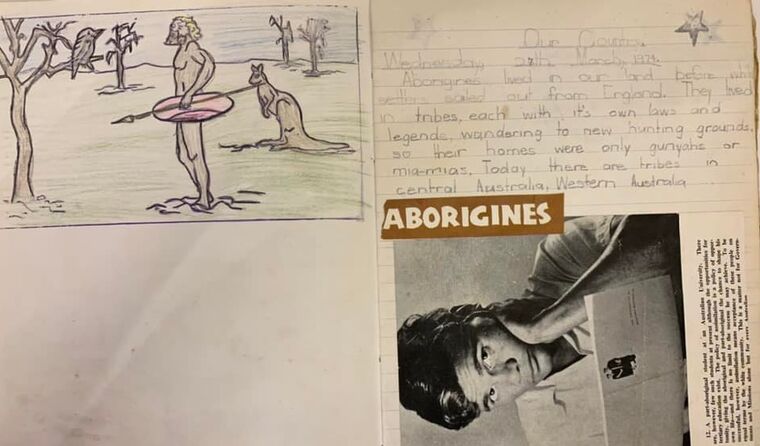News
RACGP CEO: I’m Sorry
A trip down memory lane prompted Paul Wappett to reflect on his early experiences with Aboriginal Australians, and vow to make up for lost time.
 Australia has a ‘shameful’ past when it comes to the treatment of Aboriginal and Torres Strait Islanders, writes Paul Wappett. (Image: AAP)
Australia has a ‘shameful’ past when it comes to the treatment of Aboriginal and Torres Strait Islanders, writes Paul Wappett. (Image: AAP)
Growing up in Lismore in the early 1970s saw me right at the pointy end of white Australia’s treatment of Aboriginal and Torres Strait Islander people.
Despite Lismore’s population including around 8–10% Indigenous residents, the town was largely separated.
Not through any particular explicit legal instrument ala the apartheid regime in South Africa or the Jim Crow laws in southern states of the US. Not even through deliberate policy objectives at all levels of government.
But the town was, for all intents and purposes, a segregated town, at least for me.
A disproportionate share of the Indigenous community – largely because of economic means – lived in the floodplain areas of town that flooded every year, and that my family and I rarely visited. The place where I interacted most frequently with Aboriginal kids my age was on the sporting field, both as teammates and competitors, but rarely outside those arenas.
I can recall only about 3–4 kids at my Catholic primary and secondary schools, with indigenous kids tending to go to one primary school and one high school, leaving all of the other schools homogenously white.
The local newspaper, the Northern Star, made a point of explicitly mentioning the Aboriginality of youth offenders in the court reports they published, but never mentioned the caucasity of other offenders (if their court reports were published at all).
It was rare to see Indigenous families at the restaurants that we’d go to as a family, or at the picnic grounds nearby. And so, I missed out on this great opportunity to learn about the richness of the culture of the Bundjalung People and Aboriginal and Torres Strait Islander people more generally.
Recently, as we were cleaning out my dad’s place, I came across my Year 3 social studies exercise book from 1974.
Our teacher, Mrs Galbraith (who, if my memory serves me correctly, was so tiny that I was as tall as her, despite being only eight years old at the time), used to write things on the blackboard. We were required to sit silently and copy the words into our exercise books, but not ever really discuss the content itself.
Instead, we would be assessed for the neatness of our penmanship and accuracy in reproducing her work, not our understanding of the subject matter (not exactly the type of pedagogy that is employed in schools today, thankfully).
I’ve taken photos of some of the things we were required to write in our books about Aboriginal people – the caricatures presented are horrifying to me.

RACGP CEO Paul Wappett says the depiction of Aboriginal people during lessons at his school were ‘horrifying’ caricatures. (Image: Supplied)
Years later, my brother’s first wife, Marcelle, learned that she was part of the Stolen Generation.
Removed from her parents and raised in a white family, she had no connection whatsoever to her mob or to her Aboriginality at all. It spurred Marcelle to devote herself to activism and education and she recently completed her PhD in Indigenous literature and history.
Their daughter, our niece Stevie, is just finishing a Masters in Indigenous Literacy and is applying for PhD scholarships.
Their immersion in their culture has been an extraordinary source of learning for my family and for me.
It has brought home to me both what my part in the systemic suppression of Aboriginal and Torres Strait Islander people has been, and what a missed opportunity we have had in Australia to celebrate the richness of the culture of our First Nations people and the contribution they make to the fabric of Australia.
So, on National Sorry Day, I want to say sorry.
Sorry for the ignorance of my youth. Sorry for the complacency of my adulthood. Sorry that the intergenerational trauma felt by First Nations people is continuing and is raw and painful. Sorry that I have had the privilege of being oblivious to these issues, despite having lived in a place where I should have noticed – and done – more.
And sorry that we as a nation have such a shameful past and legacy that has led to systemic structural disadvantage and disparity of opportunity for the oldest living culture on earth.
I’m going to do what I can to make up for lost time.
This article is a reproduction of an internal RACGP message posted by Mr Wappett on National Sorry Day, May 26.
Log in below to join the conversation.
Aboriginal and Torres Strait Islanders National Sorry Day reconcilliation
newsGP weekly poll
Which of the following areas are you more likely to discuss during a routine consultation?